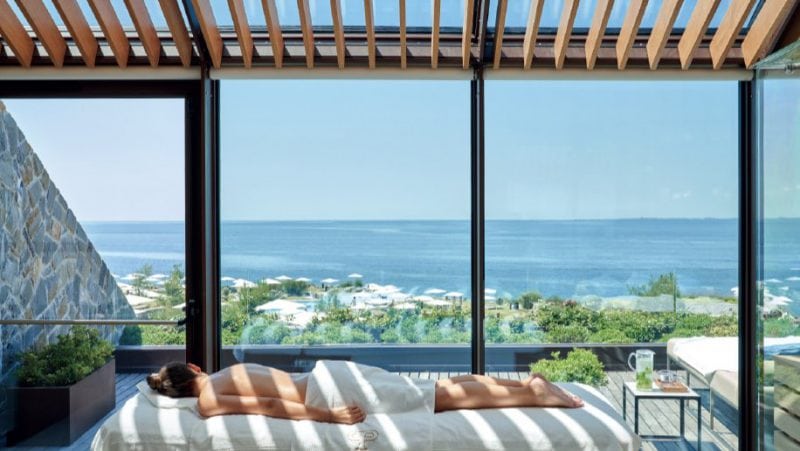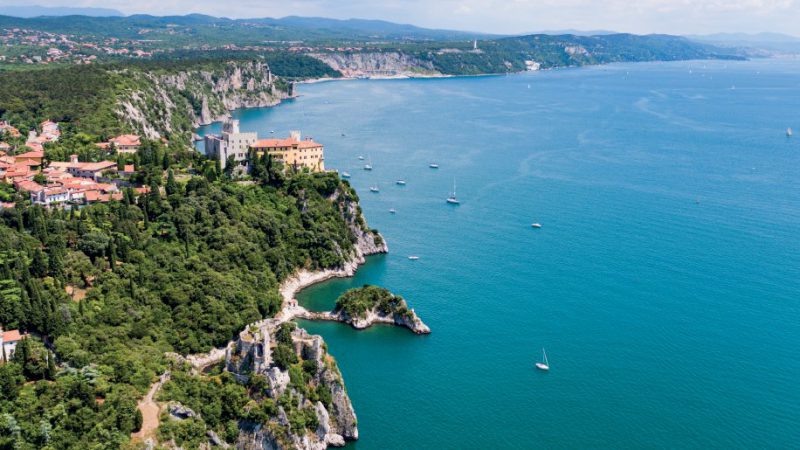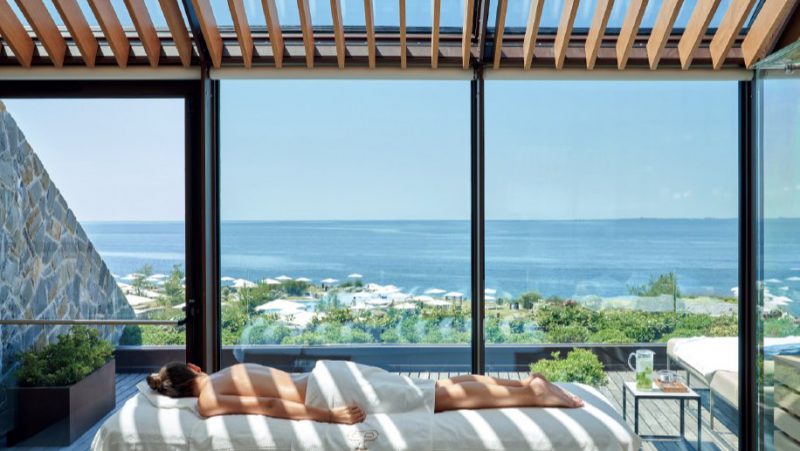Little Italy
The lesser-known northeastern region of Friuli Venezia Giulia boasts unspoiled vistas and sail-friendly waters
November 30, 2020


Each time we rounded a blind corner on the Strada Costiera – the spectacular coastal road that winds around the Gulf of Trieste, where sharp cliffs drop into the turquoise waters of the Adriatic Sea – our driver would sound his horn three times. “For good luck,” he told us; a tradition of the Triestini community in this northeastern enclave of Italy.
Little did we know, as we took in the vista, that just a few months later that luck would run out. Initially the European epicenter of COVID-19, Italy has seen over 37,000 deaths, though the highest number of cases were located in the northern region of Lombardy, miles from Trieste.
Following a strict early lockdown and subsequent contact-tracing and safety measures, the country has bounced back before its neighbors, opening up in May, although the rate of new infections has seen a spike this fall and at press time the government has imposed a second wave of stricter measures in some regions, and the prospect of another nationwide lockdown looms large.
Nonetheless, the autonomous region of Friuli Venezia Giulia, in which Trieste is nestled, has a plan in place to tempt visitors back whenever they can come – and, in that, it will be aided by its picturesque setting and rich cultural heritage. Describing this cosmopolitan area merely as Italian would be doing it a disservice. Bordered by Austria to the north, Slovenia to the east and Italy’s Veneto region to the west, it is steeped in the traditions of its neighbors.
Trieste, as its capital, has been fought over for centuries – once part of the Habsburg Empire, it was handed to Italy in 1918, subsequently occupied by Germany during the Second World War and then divided between Britain, the US and Yugoslavia before returning to the Italians in 1954. Today, the region is a melting pot of nationalities, reflected in its mixture of neoclassical Austrian architecture and Venetian canals.
Its frontier location and access to the Adriatic Sea, has long provided economic benefits – Trieste’s free-port status fulfilled the Habsburg Empire’s maritime ambitions by linking the East and West. And yet, in comparison with other regions of Italy, Friuli Venezia Giulia has been lesser known as a travel destination. Perhaps that’s partly because its multicultural nature means its identity is difficult to pinpoint – author and travel writer Jan Morris once described the capital as “nowhereness,” a fairly accurate portrayal when you consider that as recently as 1999, 70 percent of Italians weren’t aware that Trieste even belonged to the nation.

First Port of Call
As cities such as nearby Venice have been overwhelmed by tourists, travelers are now seeking idyllic alternatives, for which the region is ideal. That’s where the roll-off-the-tongue Portopiccolo comes in, a tremendous €45 million ($52 million) borgo (village) in Sistiana, carved out of the limestone Duino cliffs. The resort was opened in 2014 and predominantly financed by the Rizzani de Eccher construction group and Rilke real estate fund.
Alleys weave through the labyrinthine hamlet, mapping out its five-star hotel, luxury residences, gourmet restaurants, beach club, upmarket boutiques and world-class spa. These are all linked by a vast network of 72 elevators – some are on a diagonal incline, an at-first-unsettling trip but one that is definitely preferable to facing the steep climbs on foot after a large bowl of pasta.
It’s easy to see why people would invest in real estate here. Portopiccolo is well connected thanks to its borderland location – Ljubljana, Treviso and Venice airports are all within a hundred miles, and the smaller Trieste airport is only a 15-minute drive away – and the waterfront villas are highly tempting.
Still, if you only have time – or the funds – for a quick dose of escapism then the Marriott-operated Falisia, a Luxury Collection Resort and Spa, is indistinguishable from the peach-hued residences. The 58-room hotel mirrors its marine environment with a color palette of blues and whites, while brass and bronze elements pay homage to the golden age of ocean liners.
The rooms are suitably chic, featuring royal blue tapestries, sumptuous beds and spacious bathrooms clad in stone and marble. There’s an unmistakable Italian flavor – toiletries by Acqua di Parma and heavenly biscotti baked onsite – yet the foreign influence is also in evidence, with canopy beds inspired by the Habsburg coat of arms.
Force of Nature
As with many new-builds of this kind, the resort has a strong focus on sustainability. The buildings do not produce CO2, air-conditioning and sanitary water production are generated by geothermal energy, and cars are restricted to the underground garage, an eco-touch with an added benefit – it was so quiet at night that I could just about hear the waves crashing.
Once here, there’s no real need for a car – if you can sail, that is. Guests can cruise into Portopiccolo’s private marina, docking in one of its 120 berths. Sailing is far more than a means of transport to residents of Friuli Venezia Giulia, forming part of its identity thanks to the bora (winds) that blow in from the Adriatic – the region has 25 marinas and 15,000 berths. My visit coincided with the build-up to the 51st edition of the Barcolana regatta in October, the largest sailing race in the world, and the excitement was palpable.
As I’m not yet a yacht owner (one can only dream), I stuck to exploring the local area on foot, starting with the Rilke Trail. The panoramic one mile route begins in Sistiana and runs along the Duino Cliffs nature reserve to Castello di Duino, a 14th-century cliffside castle and now museum, where poet Rainer Maria Rilke once stayed.
After a day of exploring, it was a pleasure to unwind in the cocoon of Portopiccolo. Wellness worshippers are spoiled for choice here, able to nip from the infinity pools at Maxi’s Beach Club to the superb Spa by Bakel, a 39,000-square-foot structure sculpted into the cliffs, where an indoor-outdoor pool opens on to a sea-facing garden, perfect for drying off.
A Taste of the Region
The complexity of its history means Friuli Venezia Giulia does not have a typical Italian cuisine, with Slavic and Germanic influences filtering into its recipes. That said, I made sure to get my fix of carbs, indulging in succulent lobster spaghetti at Maxi’s and snacking on bresaola and cheese croissants at Pek Pane e Caffe.
There’s plenty of dining variety at Portopiccolo, but it would be a shame to miss the exquisite trattorias further afield. Blessed with a climate conducive to the production of creamy wines, the region has some of the best white wines in Italy. The bora once again come in handy, keeping the mineral-rich soils well ventilated. The region’s 1,700 vineyards produce 80 million bottles per year, and 30 percent of Europe’s vine cuttings are sourced here.
Already a fan of the region’s amber-hued wines thanks to nightcaps at the hotel’s stylish La Piazzetta bar, I sought out further labels in the rural village of Cormons, 21 miles northwest of Portopiccolo. There wasn’t a tourist in sight, with locals spilling out on to the piazza for a few glasses at Enoteca di Cormons, a bar championing local winemakers.
With aperitif over, I tried out more of the regional cuisine at Castello di Spessa, a 13th-century castle just three miles south of Cormons. The renovated castle now houses a wine resort, plus the charming La Tavernetta al Castello restaurant, which is divided into cozy cave-like rooms. Joining large Italian families in feasting on wild nettle ravioli and millefeuille with fresh berries and cream, I left feeling merry in both senses of the word.
Rooms at Falisia, a Luxury Collection Resort and Spa, Portopiccolo, in November start at $255 a night. marriott.com




